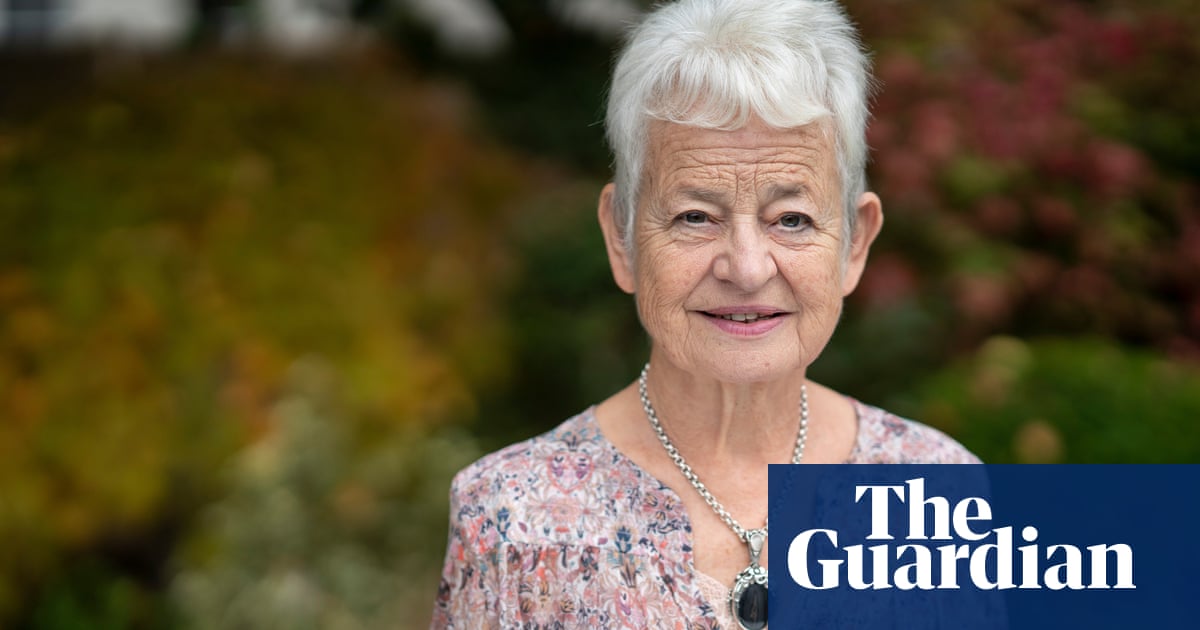- cross-posted to:
- [email protected]
- cross-posted to:
- [email protected]
Archived version: https://archive.ph/kBVee
The publishing industry has been mired in debate in recent years about editing older books to remove content that could be deemed offensive.
Even the prime minister became involved in February after the publisher Puffin Books hired sensitivity readers to rewrite parts of Roald Dahl’s books to ensure they “can continue to be enjoyed by all today”. The development prompted Rishi Sunak to say that publishers “shouldn’t gobblefunk around with words”.
Jacqueline Wilson waded into the conversation on Monday, saying that making changes to children’s books was sometimes justified and that she would not write one of her past novels today because of its controversial content. Below, we look at what other authors have said on the topic.
Margaret Atwood: ‘If you don’t like it, read something else’
Speaking to the BBC’s Newsnight in March, the Canadian author commented on the Dahl controversy: “Good luck with Roald Dahl. You’re just really going to have to replace the whole book if you want things to be nice.
“But this started a long time ago; it was the ‘Disneyfication’ of fairytales. What do I think of it? I’m with Chaucer, who said: ‘If you don’t like this tale, turn over the page and read something else.’”
Irvine Welsh: ‘I found it a positive experience’
The Trainspotting author said he had worked with a sensitivity reader for the first time when writing his 2022 novel The Long Knives, which deals with transgender issues. He wrote on Twitter: “I was initially very hostile, regarding this as censorship. However, my experience with the trans reader was highly positive.
“The reader was highly supportive of what I was trying to do: balanced, thoughtful and informative, and the book is infinitely better as a result. I found it a positive experience. Certainly, there was none of the crackpot vitriol you see on all sides of the debate on here.”
Charlie Higson: ‘Times and sensitivities change’
Higson, an author of young adult fiction including the first five Young Bond novels, said sensitivity reading is “nothing new”.
In March, he told the Guardian: “I don’t think it was a sensitivity reader who insisted on the change to the original title of Agatha Christie’s And Then There Were None.” The original title included a racial slur.
“Times change and sensitivities change, and thankfully, we now accept that some things in older books can be very upsetting to some modern readers and a more diverse readership,” he said.
Salman Rushdie: ‘This is absurd censorship’
Commenting on the Dahl debate in February, Rushdie described the editing of his books as “absurd censorship”. On Twitter, he wrote that Puffin and the late author’s estate “should be ashamed”.
Despite his defence of Dahl’s works, Rushdie said he was “no angel” and that he was “a self-confessed antisemite, with pronounced racist leanings.”
Philip Pullman: ‘Let him go out of print’
Pullman told BBC Radio 4’s Today programme in February: “If it does offend us, let him go out of print.
“What are you going to do about them? All these words are still there; are you going to round up all the books and cross them out with a big black pen?
“Read Phil Earle, SF Said, Frances Hardinge, Michael Morpurgo, Malorie Blackman. Read Mini Grey, Helen Cooper, Jacqueline Wilson, Beverley Naidoo.
“Read all these wonderful authors who are writing today who don’t get as much of a look-in because of the massive commercial gravity of people like Roald Dahl.”
I don’t understand the problem with books like these. Just put a disclaimer in the first few pages saying that it’s a product of its time and some views may be dated and move on.
But Jacqueline Wilson is specifically talking about children’s books, where that disclaimer won’t be particularly helpful (FWIW I completely agree for adult books). I think Pullman has the right idea - allowing the books to go out of print is the right approach here, but won’t be adopted for obvious reasons
It just really rubs me the wrong way when people want to “rewrite history” either by modifying books, art or anything else, to fit their modern world view.
First of all: I think it’s naive to believe that we somehow now have “the answer” to what is “correct”. Secondly: I really don’t like setting a precedent that we can just erase uncomfortable things at any time. Imagine the how much has been lost throughout history by different cultures erasing things they didn’t like.
Most of all, it’s the concept of judging acts or words from other times and cultures based on our idea of right and wrong that just gives me the impression that people lack perspective, and the ability to put things into context.
Realistically, this is a complicated issue. I can understand wanting to modernize older works (wanting to share something you enjoyed, but struggling because said thing has not aged well), but part of the value of those works is in the view they give of the past.
The important part if this is going to become commonplace, I think, is making sure the process is transparent and the originals preserved; EG, if a book is going to be edited, it needs to be explicit (in the new version) that it was editied, what was edited, and why it was changed. It’s one thing to tweak something so that it can still be enjoyed, it’s another to try to forget it was problematic in the first place.
That all said, I find I agree with Pullman, here; I doubt the publisher is motivated to do this by anything other than sales. Let new authors find their place, instead of whitewashing the works of dead men to turn a quick buck. /shurg
Editing books for today’s sensitivities feels uncomfortably close to burning and banning them. It’s essentially historical revisioning with the reason changing from “it was never written or shouldn’t have been written” to “the author was always in line with our contemporary views and can never be ‘wrong’”. The reader needs to experience the book exactly how the author originally intended it to be. The presence of some offensive words or passages contextualizes the particular thoughts of the author as well as reflects on what standards society had at the time of writing.
Here’s an extreme way to think about it. Would we rewrite Homer? Or Laozi? Or texts from 300 years ago? 100 years ago?
There is no line. Times change, just leave it there, in another 100 years you’ll repeat the whole process again, just enjoy the new stuff in the present and read the old stuff with an understanding that it’s different.
The only people making this an issue are those who want to sell you the old books but need to increase their market share or not get caught up in controversy
This is the best summary I could come up with:
The publishing industry has been mired in debate in recent years about editing older books to remove content that could be deemed offensive.
Jacqueline Wilson waded into the conversation on Monday, saying that making changes to children’s books was sometimes justified and that she would not write one of her past novels today because of its controversial content.
The Trainspotting author said he had worked with a sensitivity reader for the first time when writing his 2022 novel The Long Knives, which deals with transgender issues.
Despite his defence of Dahl’s works, Rushdie said he was “no angel” and that he was “a self-confessed antisemite, with pronounced racist leanings.”
“Read Phil Earle, SF Said, Frances Hardinge, Michael Morpurgo, Malorie Blackman.
“Read all these wonderful authors who are writing today who don’t get as much of a look-in because of the massive commercial gravity of people like Roald Dahl.”
I’m a bot and I’m open source!



